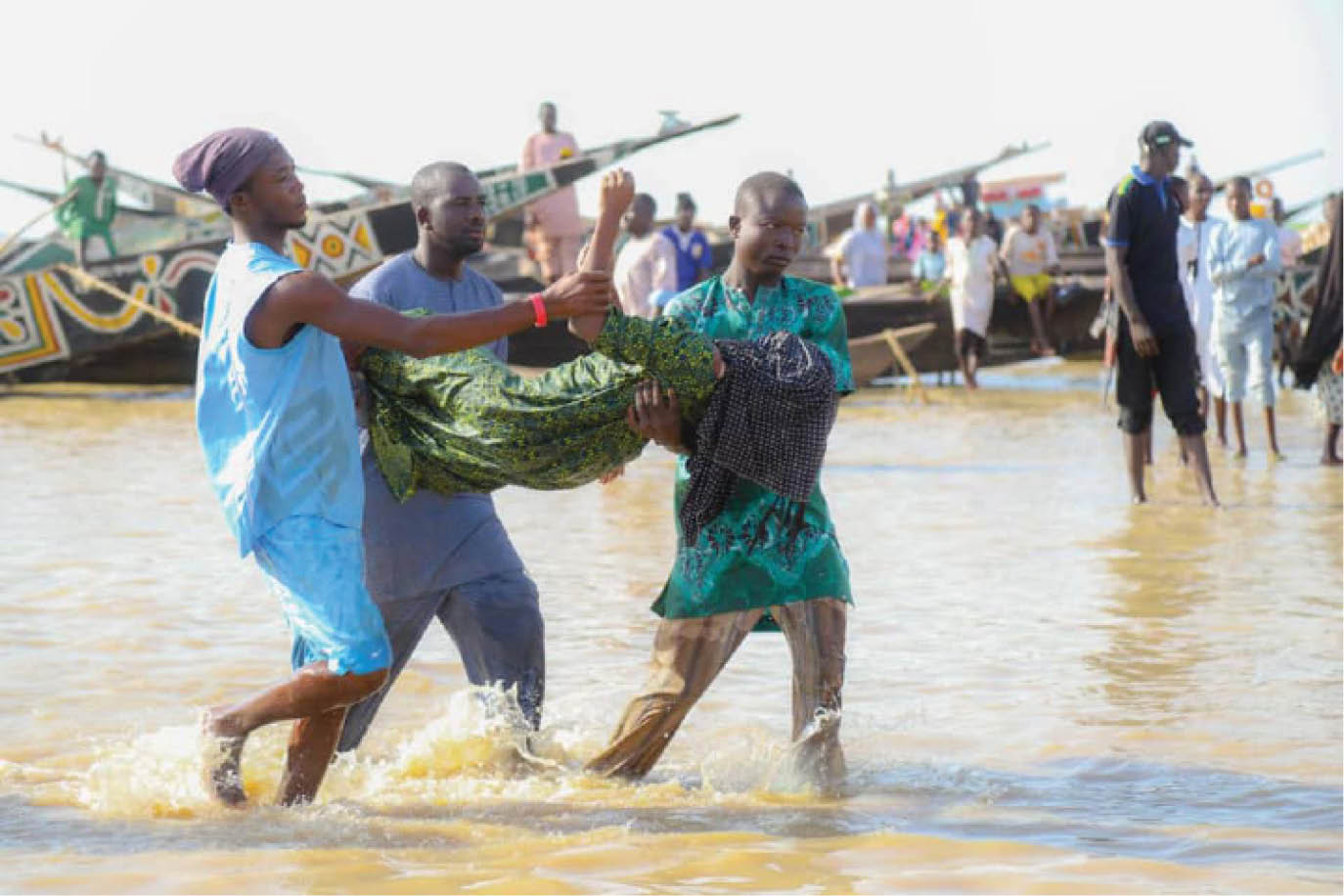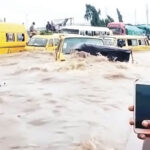The Emir of Yauri, Dr Muhammed Zayyanu Abdullahi, said boat accidents in Nigeria would have been minimised, if not completely averted, if the authorities saddled with the responsibilities of making the waterways safe were alive to their duties. In this interview, the monarch spoke about the cause of last week’s tragedy, where over 100 passengers on board were killed. Excerpts:
Daily Trust: You seem not to have accepted overloading as the cause of last week’s boat tragedy in your domain, what do you think could be responsible for the accident?
Muhammed Abdullahi: The whole thing is very unfortunate because it could have been prevented if proactive measures were taken. When Kainji Dam was constructed in the 1960s, the free flow of River Niger was controlled. Therefore, in the northern part of the dam there was high volume of water accumulation, which spread over a large area of forest, to the extent that many trees were submerged.
- Five killed in fresh attack on Imo police headquarters
- After 9 years, Kano still awaits completion of 7.2mw power project
If the trees were removed from the roots, we would not have been experiencing these disasters over the years. Unfortunately, these trees are the types that don’t rot under the water, so some of them are still standing as stud and logs. Again, when the water tide recedes, the rocks under the river also surface. These obstacles under the water are the causes of accidents in this area.
I believe the boat tragedy that happened recently was not because of overloading. Yes, overloading can cause accident, but this time around, the survivors confirmed to us that before the boat sunk, there was a loud noise, indicating that it must have hit a hard object underneath. Usually, if it was a case of overloading, the boat would sink into the river, but to make a big bang and break apart, it must have hit a solid substance under the water. Don’t forget that since Kainji Dam was constructed over 50 years ago, the river has not been dredged.
DT: You said if these obstacles were cleared at the time of constructing the dam, you wouldn’t have been experiencing these disasters; are you saying such tragedies have been happening over the years?
Abdullahi: Boat mishaps are not new in this area. During the rainy season we used to have this kind of accidents. As you know, 20 years ago, communication was not as advanced as it is now, so people didn’t get to hear about the news of these accidents until now. I can recall that about 15 years ago, there was a boat accident that claimed the lives of over 50 people.
DT: Have you made any effort to put a stop to it by drawing the attention of the relevant authorities?
Abdullahi: The Nigerian Inland Waterways Authority (NIWA) is the body saddled with the responsibility to ensure that our waterways are safe for navigation. Unfortunately, they seem not to be up and doing. I can recall that when a boat mishap occurred in 2003, I wrote to the authorities there, informing them of what happened. But they only sent a letter of condolence to me.
We have also appealed to them to cut down these trees and blast the rocks, but they did not do it. If these measures were taken in good time, these calamities would have been minimised if not completely averted. Our culture in this country is that we don’t take measures until the situation is out of hand. It is at this time that you will see people running helter-skelter to remedy the situation. This is not good at all.
However, I have to say that we are very grateful to the federal government and Mr President for establishing the Hydroelectric Power Areas Development Commission (HYPADEC). And it is working.
About a week before the incident in Warra, I sent a letter to the managing director of the HYPADEC, asking them to please do something about the dangerous obstacles under the river. Unfortunately, before the processes involved would be completed, this tragedy occurred. I hope the accident would serve as a wakeup call for the authorities concerned.
I also alerted the Kebbi State Government, though I know the river is not under their jurisdiction. I informed the government that our people who are navigating the river are in danger and something drastic had to be done as soon as possible.
DT: Have you thought of taking up the matter to a high level, perhaps by trying to see Mr President?
Abdullahi: You know we have to follow protocols. I can’t go to Mr President directly. But we will remain in touch with the NIWA as the agency responsible for waterways. This is all we can do.
In 2003, I wrote a letter requesting for safe navigation in the inland waterways. That was when a boat accident occurred, which killed 50 people. I also wrote to the Kebbi State Government, proposing for setting up of a Kebbi State water transportation commission that would collaborate with the NIWA so that we can have free and safe navigation. I have been in touch with the NIWA, but they always complain of paucity of fund.
DT: After several efforts over the years to ensure that the river is safe for navigation and the riverine communities are safeguarded against yearly flooding but not much has been achieved, do you suspect any act of sabotage from any quarters?
Abdullahi: It is just a matter of carelessness and lack of commitment. In the past, people discharged their duties with utmost discipline and commitment, but now, it is no more like that. Over the years, the tributaries of the river emptied their deposits into it, and at the end we have sediments at the bottom of the river. This made the river shallow, so a little bit of water volume makes it to overflows its banks. But if it is dredged, all the unwanted deposits, the trees, logs, stubs and rocks will give way. That is why we usually have flooding after a small rain.
DT: If the river is dredged, what economic prosperity do we expect to see in Yauri emirate?
Abdullahi: When the Kainji Dam was constructed, Yauri made a lot of sacrifices. The emirate lost a lot of its endowments. We lost a lot of islands to the dam. When the then federal government reliased the volume of sacrifices made, so many promises were made, including constructing a port in Yauri so that cargo from the Niger-Delta could come here for onward distribution to other parts of the country. They also promised to construct a ring road from Yauri to Kainji Dam, small boat industry, irrigation and improvement of fisheries. But of all these promises, none was delivered.
DT: Apart from farming onions and fishing, where else does Yauri have advantage over other communities?
Abdullahi: Yauri is the only place in this country where rice is cultivated three times in a year. Apart from the usual rainy and dry season rice farming that is tenable everywhere, in Yauri, we have what we call mud rice farming. Mud rice farming forms part of the third rice harvesting period in the area. This is done during low tide; that is when the water in the river recedes.




